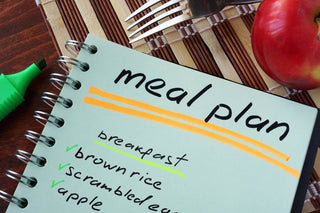You’ve cut out the snacks, you’ve cut out the sweets, you’ve cut out the unhealthy eats. Added in regular exercise and all the things you’re supposed to do, but you’re still having trouble with your weight. Why?
According to recent research, it may have less to do with the foods you’re eating and more to do with when you’re eating them.
A review of multiple studies showed that people with irregular eating patterns weighed more, had wider waistlines, and had a higher body mass index (BMI) compared to people who had more regular eating patterns.
Researchers studying shift workers found that eating different amounts of food at different times each day can cause “chronodisruption” or “chrononutrition” by messing with your internal clock, or circadian rhythm – the same “clock” that regulates your sleep cycle – which, in turn, can lead to adverse health effects like obesity and an increased risk of cancer.
Studies of older adults also found that irregular eaters are at greater risk of developing metabolic syndrome, a group of conditions that include high blood sugar, high blood pressure, and excess abdominal fat, all of which could lead to health problems such as heart disease, diabetes and stroke.
And who you eat with may also have an effect on your waistline. Study analysis showed that eating with family frequently led to healthier eating habits, especially in children and adolescents who ate more fruit, veggies, and dairy, and fewer sweet drinks during family meals.
What is Eating Regularly Anyway?
Regular eating means you’re eating at regular times during the day, keeping a similar pattern, and avoiding long periods of time (4 or more hours) between each meal. You should be having breakfast, lunch, and dinner, with one or two snacks in between, every day with only the occasional exception.
Unfortunately, eating regularly can be difficult because of our lifestyles. Everything from work schedules, our home environment, social obligations, and stress can have an adverse impact on our eating habits. So can a lack of preparation – making grocery trips, cooking, and setting meal times. We often skip meals during the week, eat out more, eat too late, and eat more on the weekends.
Tips for Regular Eating
What, then, can we do to regulate our eating to avoid weight gain? Here's a few tips:
Keep a diary. Document your eating habits to learn when and what you eat each day. Even take notes on who you eat with. Knowing your current patterns will help you break bad habits and develop good ones.
Don’t skip eating. Missing out on a meal or snack will mess up your hunger cues and metabolism, as well as make you more likely to binge eat later, further increasing the odds of weight gain!
Make time. Carve out time to make sure you have at least 10-15 minutes to eat. Even if you’re busy, prioritizing your meals and snacks will help you keep a regular eating schedule.
Eat breakfast. If you “don't feel hungry in the morning,” it’s likely your body has gotten used to skipping breakfast. Reset that internal clock by starting off with a small breakfast, like a serving of fruit or ½ cup of yogurt, and gradually increase what you eat to a healthy amount. And by starting off with a morning meal, you’re more likely to stay on track the rest of the day.
PLAN, PLAN, PLAN. Plan your eating times and your meal choices in advance. Create a weekly or biweekly meal plan, and shop for the foods you need to stick to the plan. Knowing when and what you’re going to eat will give you structure and help you develop a healthy routine instead of allowing you to make bad, on-the-fly food choices.
Keep healthy snacks close by. Always have something in your bag, in a drawer in your desk, or in the car to fight hunger.
Try again. It’s not always easy changing old habits or sticking to a new routine when your work or social schedule gets hectic. But if you miss meals or even eat extra meals and snacks, just hit reset and try to get back on a regular eating schedule. It’s not about being perfect; it’s about making your best effort.
Weight management is no easy task, but good planning and consistency in your eating habits will lead to better outcomes. Remember the old saying “eat breakfast like a king, lunch like a prince, and dinner like a pauper,” and don’t forget the snacks in between!

